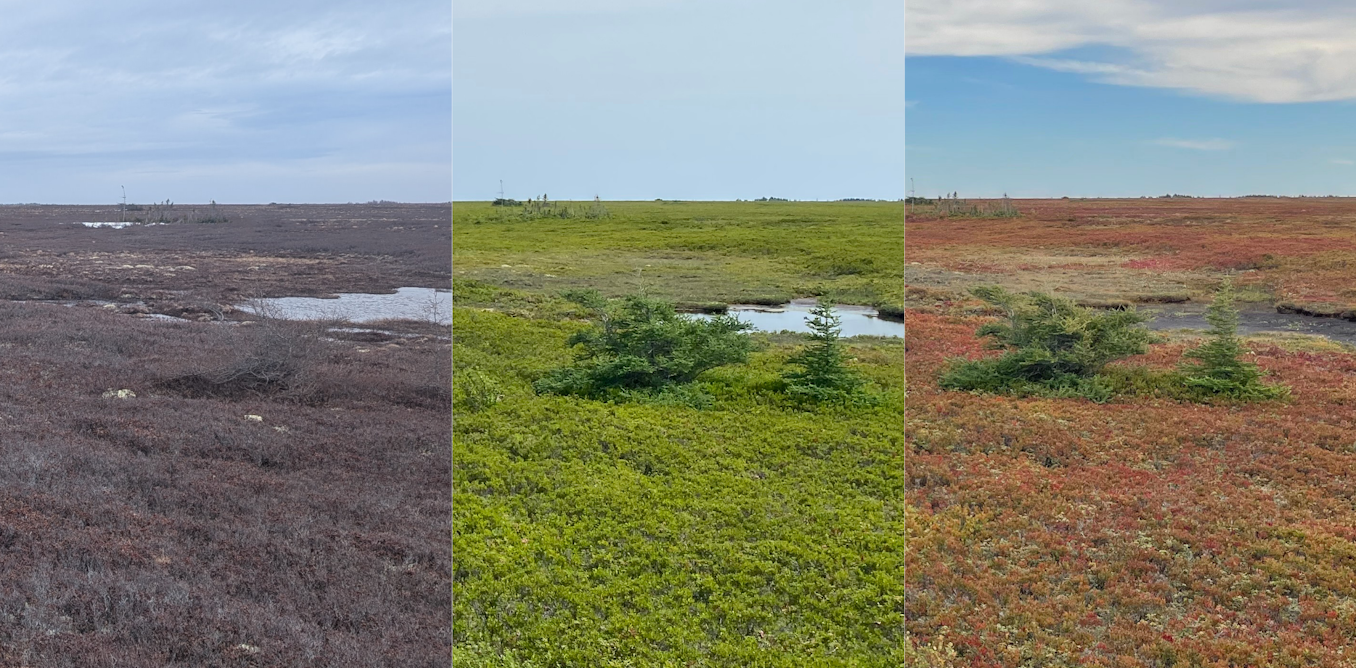The science of romantic love, explained an anthropologist | Helen Fisher
The Science of Romantic Love Explained by Helen Fisher
In her captivating exploration of the science of romantic love, anthropologist Dr. Helen Fisher reveals the deep-rooted mechanisms driving human attraction and connection. Across cultures and throughout history, love remains a universal theme, transcending traditions and social norms. Fisher investigates why humans pair up, noting that while 97% of mammals do not form long-term partnerships, our species has evolved to seek companionship for child-rearing.
Through extensive research and ethnographic studies, Fisher identifies three crucial brain systems: sex drive, romantic love, and attachment. Utilizing advanced brain scanning techniques, she uncovers how these systems intertwine to create profound emotional experiences. The ventral tegmental area in our brains produces dopamine, fostering focus and craving—elements integral to love. Importantly, Fisher highlights the addiction-like nature of romantic love, revealing that heartbreak activates brain regions linked to physical pain and craving.
As Dr. Fisher delves deeper into the neuroscience of love, she challenges preconceived notions of romance, urging society to understand love not as a whimsical emotion but as a powerful drive essential for survival and connection. In this enlightening discourse, she offers insights that may mitigate the agony of rejection and foster a healthier relationship with love itself.
Watch the video by Big Think
Author Video Description
“No matter what their gods were, what they did for a living, what they wore, the songs they sang, everything varies except love, and everybody loves.”
Subscribe to Big Think on YouTube ► https://www.youtube.com/channel/UCvQECJukTDE2i6aCoMnS-Vg?sub_confirmation=1
Up next,
The science of sex, love, and attachment | Dr. Helen Fisher: Full Interview ► https://www.youtube.com/watch?v=ORAaaBevtT4
From the beginning of humanity, cultures and societies vary in tradition, religion, art, philosophy, and customs. One constant that remains unchanging? The essential need for love and partnership.
Dr. Helen Fisher explains the drive for love from an anthropological perspective, exploring the science of attraction, heartbreak, rejection, and how our dopamine factories send us on lifelong quests to find “the one.”
0:00 The origins of romantic love and attachment
02:53 Love across cultures and time
04:39 The evolutionary roots of love
07:45 Discovering the brain in love
10:00 What the brain reveals about love
12:05 Love and addiction
Read the video transcript ► [https://bigthink.com/series/the-big-think-interview/universality-of-love/?utm_source=youtube&utm_medium=video&utm_campaign=youtube_description
———————————————————————————-
Go Deeper with Big Think:
►Become a Big Think Member
Get exclusive content, early, ad-free access to new releases, and more. https://www.youtube.com/@bigthink/membership/
►Subscribe to Big Think on Substack
Explore content that enlightens, inspires, and transforms.
https://bigthinkmedia.substack.com/subscribe/
►Get Big Think+ for Business
Engage learners like never before with high-impact video microlearning from the biggest thinkers in the world. https://bigthink.com/plus/?utm_source=youtube&utm_medium=video&utm_campaign=youtube_description
———————————————————————————-
About Helen Fisher:
Helen E. Fisher, Ph.D. biological anthropologist, was a Senior Research Fellow at The Kinsey Institute at Indiana University, and a Member of the Center For Human Evolutionary Studies in the Department of Anthropology at Rutgers University. She wrote six books on the evolution, biology, and psychology of human sexuality, monogamy, adultery and divorce, gender differences in the brain, the neural chemistry of romantic love and attachment, human biologically-based personality styles, why we fall in love with one person rather than another, hooking up, friends with benefits, living together and other current trends, and the future of relationships — what she called: slow love.
About Big Think
Big Think is the leading source of expert-driven, actionable, educational content — with thousands of videos, featuring experts ranging from Bill Clinton to Bill Nye, we help you get smarter, faster. Get actionable lessons from the world’s greatest thinkers & doers. Our experts are either disrupting or leading their respective fields.
Video “The science of romantic love, explained an anthropologist | Helen Fisher” was uploaded on 10/17/2025 to Youtube Channel Big Think




































Good video, but I feel unsatisfied. I feel like there's a metaphysical element that transcends science on this😳😳
Monogamy researcher here. This could have been half as long if better edited to remove all the repetitive fluff or twice as long if some of the other relevant research had been included.
You guys are my favorite channel on YouTube. Thank you for bringing everyone the wealth of knowledge so we understand ourselves, the world around us and arm ourselves with the right tools to help navigate through this complex game of survival.
Let's take a closer look at gibbons.
Phylogenetic trait analysis (phenomics) nests humans with gibbons, even if chimps which share more gene traits (genomics) with humans. There's a reason for this.
Unfortunately deep time genomics too often recovers untenable results, perhaps due to the insertion over time of viral genes.
Getting back to gibbons, they pair bond and sing, are already bipedal, born naked, have eyebrows, small nares, cute faces, long Achilles tendon, fight with fists (not teeth), hide fertility signals, etc. Gibbons and humans never knuckle-walk. Here's the list of pre-human taxa: Sahelanthropus, Hylobates, Ardipithecus, Oreopithecus, Homo floresiensis, Homo erectus, Homo sapiens.
Leakey Fondation won't like this: Lucy, the australopithecine, was bipedal by convergence with humans. It looks so chimp-like because in trait analysis it nests with chimps.
Through self analysis. Evolution has done a job for people to be together A) raw sex attraction is between 4 hours and 3 months. B) when children are born about 4 years of commitment.
After these cultural norms attempts to control behaviors by imposing our feelings on us.
Evolution has failed to produce people that are good partners beyond this and parents that can raise children in a modern environment. So, we created systems of behaviour (religious, legal, cultural, societal) to attempt to manage the natural traits.
Unfortunately, it creates unhealthy minds believing we can engineer nature as a community or control it as an individual shows hubris.
Ultimately dooms the species as our intelligence will no longer be beneficial.
.
So that’s the crazy thing about reality and intuition. Intuition is able to solve massively complex problems that would take a decade, within 30 seconds. One of the tricks I used to get so far in my work is that I deeply followed my intuitions. I used intuition to solve problems that philosophers and scientists hadn’t solved in a 1000 years. That’s how powerful intuition is. Intuition is a tool of God. Intuition is a conduit to Infinite Intelligence. However, if you blindly trust intuition — as New Agers do — you will fall into massive self-deception. So the follow-up work is absolutely necessary. Those 10-15 years were not in vain. Not all of my intuitions are right. Some are huge illusions.
Of course this also applies to intuiting people. It is much easier to intuit that something is wrong with a person long before you can formally prove it or explain it. Over the years doing this work I have honed my intuition so well that I can tell if someone has mental illness just from how they write internet comments. I've seen enough mentally ill comments that I just smell them as soon as I see them. This skill is priceless.
Doing this work I have developed an insane intuition for human illusion. I can see through people like an x-ray. I see every game they are playing — games they don't even know they are playing. Intuition is a crazy skill when properly honed. Intuition doesn't just happen. It requires years of honing. Honing intuition is exactly like training an LLM (AI). Honed intuition is the pinnacle of mastery. It's what makes the master supernaturally good, awesome, God-like.
So called “romantic love” is a sign of the endless battle between human’s biological and social entities.
Women = Menopause ( hard questions for Lgbtq)..
I'm so happy that I'm asexual and aromantic. Makes life so much easier without this complicated BS! Not feeling a deep attachment (love) is such a godsend. People think it's horrible, but I freaking LOVE it! Wouldn't change it for anything!
Okay, so if love is addiction, then people should stay away from it. Problem solved 😊
Ravens and doves mate for life.
Rest in peace
"Nobody gets out of love alive"? A 100% fatality rate?! Yikes!
I don't recall dying. It certainly hurt but I didn't die. Maybe "unscathed" would be a better word choice? Otherwise interesting, Thank you.
97% of mammals do not pair up. Humans do ? On what research is that founded?
What “same” pattern did she found in these 90 etnographic studies from hunter gatherers ?
One day, I'll find justice for what the Canadian government has done to me. Nobody deserves to be tortured when pair bonding can so easily be accommodated. The BCACC, the therapists of BC, are perpetuating this loonie violence against me, so there's no excuse of ignorance about how they're weaponizing attachment theory.
Love of a man goes trough his stomach. Now we understand where that is lokated ?
You can have sex with somebody who you’re not in love with ? Also when you know that sex is going to produce a baby ?
If you invite Helen Fisher you get a scientific view on romantic love, with anedoctes and an exceptional rethoric of course, but its about neurotransmitters and biology. If you want a religious or metaphysical take on love, there are many gurus and philosophers out there to scratch your itch.
My favorite part of behavioral research is the scientific curiosity it sparks in me (and hopefully others) to poke holes in the premises! This is a cool narrative, if true. I feel like a lot of human behavior and evolution was just assumed (e.g., heteronormative romance), but that’s for my curiosity to look up.
So did she enhance theory either psychological or anthropological? Did she prove anything related to pairbonding ? What about all the cultural statements that love is in the heart ?
Love hurts because of a demand and supply inequality.
16:54